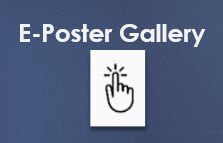
Central European Summer Time CEST/GMT+2
Recorded sessions on demand will be available 24 hours after the session ends
Salt and water balance in the neonate
Approach to the child with atypical genitalia
TIME FOR A NEW PARENTERAL POTASSIUM RECOMMENDATION IN PRETERM INFANTS?
Abstract
Abstract Body
Background and aims
In preterm infants, energy- and amino acid-optimized parenteral nutrition (PN) requires careful adjustments of electrolytes to avoid electrolyte imbalances. We aimed to investigate the effects of two, in energy, amino acid, and electrolyte content differing, PN regimen on plasma concentrations of potassium, sodium, phosphate, and calcium in very low birth weight (VLBW) infants.
Methods
Single-centre observational study including all VLBW infants born before (n = 81) and after (n = 53) the implementation of a concentrated PN regimen. Daily nutritional intakes and plasma electrolyte concentrations were retrospectively collected from clinical charts.
Results
During the first postnatal week, intakes of potassium, sodium, phosphorous, and calcium were significantly increased in infants who received concentrated PN compared with infants who received original PN. Infants who received concentrated PN were less likely to develop hypokalaemia (30 vs. 76%, P < 0.001) and, even though not significant, severe hypophosphatemia (2.2 vs. 17%, P = 0.06). While the relatively high prevalence of severe hypophosphatemia in infants who received original PN can be explained by a phosphorous intake below the recommendations, potassium intake during postnatal days 0 to 3 was within the recommended intake (Mean intake: 0.7 mmol/kg/d). The risk of early hypernatremia was not affected by the different sodium intake of the groups.
Conclusions
In VLBW infants, a minimum potassium intake of 1 mmol/kg/d during the first three postnatal days might be necessary to prevent early hypokalaemia. A special low sodium PN solution during the first postnatal days may not be required.
DO NOT HARM: KAZAKHSTAN’S EXPERIENCE OF TRAINING AGAINST MEDICAL ERROR FOR PEDIATRICS
Abstract
Abstract Body
Background. Since 2015 to 2019 KMU, Kazakhstan was a grandholder of the Training Against Medical Error (TAME) project funded by Erasmus+ EACEA. KMU have had a unique chance to start teach medical students to make errors in safe learning environment using pediatric cases based on Decision-making PBL virtual patients error methodology (D-PBL VP). To evaluate the capture of the experiences of 180 4-year pediatric students after D-PBL VP error cases exposure and 32 students of control group, gathering data through the evaluation of learner performance relating to 6 linear and branched VP paediatric cases with errors.
Materials and Methods: Students performance was evaluated with МCQ after completion of D-PBL cases included 3 block of questions (18 questions in each block): 1) related to the studied cases; 2) related to different manifestations of the diseases presented in cases; 3) from area of paeds not dealt with in the VP cases.
Results: The learners who went through the branched version of the cases show better or comparable results with control group, while the results of learners in linear cases are generally worse. Patient safety skills seem to transfer, but not to different disease, showing that these skills were not generic but connected to specific features of given disease. The results were better in the group who studied using VPs with more experienced tutors.
Conclusions: The use of branched VP is beneficial to TAME in pediatrics. However, the gained experience is very case-specific and good tutor performance is necessary.

